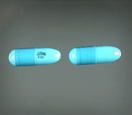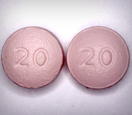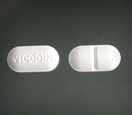“LOST MY BEST FRIEND TO DRUNK DRIVING, PILLS AND ALCOHOL. I WISH I COULD GO BACK AND TELL THEM ‘DON’T TAKE WHAT YOU HAVE FOR GRANTED.”
When recommended by a doctor, prescription drugs can be beneficial. But when abused, they can be very dangerous and addictive. At too high a dose, or when combined with alcohol, they can easily become deadly.
Prescription drugs are medicines that are legitimately prescribed by doctors to treat a variety of health conditions. When taken under a doctor’s supervision, these drugs can have great benefits. But some people believe that since these drugs are legal and prescribed by doctors, they must be safe. The truth is that it’s easy to abuse or misuse prescription drugs, and the results can be dangerous, and even deadly.
The most commonly abused prescription drugs fall into three categories:
Painkillers, Depressants and Stimulants.
Painkillers
AKA
Captain Cody, Cody, schoolboy, doors & fours, loads, pancakes & syrup, oxy, oxycotton, oxycet, hillbilly heroin, percs
WHAT IS IT?
Prescription painkillers often contain opioids that are either naturally derived from poppy flowers, or a lab-made, semi-synthetic substitute. These drugs attach to particular sites in the brain called opioid receptors, which carry messages to the brain. When you take prescription painkillers, the message the brain receives is changed, so that pain is no longer perceived as painful.
Under a doctor’s direction, painkillers can be vital in treating severe pain due to physical damage, cancer and other diseases. Unfortunately, abusing painkillers has become a serious problem among teens. The most commonly abused brand-name painkillers include Vicodin, Oxycodone, OxyContin and Percocet.
THE RISK
Prescription painkillers are powerful drugs that can be dangerous, or even deadly, especially when taken at high doses or combined with alcohol. A single large dose can cause breathing difficulty that can lead to death. The short-term effects of painkiller abuse can include lack of energy, inability to concentrate, nausea and vomiting.
LONG-TERM EFFECTS
Because of their effect on the brain, prescription painkillers can be highly addictive when misused. Even patients who are prescribed painkillers for a long time can develop a “physical dependence,” meaning that the body becomes accustomed to having the drug. Stopping the drug abruptly can cause severe withdrawal symptoms, and any changes when using these medications must be carefully monitored by a doctor.
THE BOTTOM LINE
Painkillers are among the most commonly abused prescription drugs. Without a doctor’s prescription and supervision, short- and long-term use of prescription painkillers can lead to dangerous side effects, including accidental overdose. When combined with alcohol or other drugs, these medications can be deadly, instantly.
Depressants
AKA
Downers, downs, barbs, benzos, reds, red birds, phennies, tooies, yellows, yellow jackets, candy, sleeping pills, tranks, xanies
WHAT IS IT?
Doctors prescribe depressants to treat a variety of health conditions, like anxiety, panic attacks and sleep disorders. Depressants can be divided into three groups, based on their chemistry and the treatment they address. These groups include barbiturates, which are often prescribed to promote sleep; benzodiazepines, like Valium and Xanax, which are prescribed to relieve anxiety; and new sleep medications, like Ambien and Lunesta, commonly used to treat sleep disorders.
THE RISK
In teens, depressants can cause depression, confusion, exhaustion and irritability. And because they work by slowing the brain’s activity, they can dangerously diminish heartbeat and respiration. This is especially true when depressants are combined with alcohol or OTC medications. It’s a combination that can even lead to death.
LONG-TERM EFFECTS
Depressants are highly addictive drugs, and when chronic users or abusers stop taking them, they can experience severe withdrawal symptoms, including anxiety, insomnia and muscle tremors. In fact, going “cold turkey” off of some depressants can have life-threatening consequences, like seizures, convulsions and, in rare instances, death.
THE BOTTOM LINE
Someone may suggest you give one of these prescription pills a try, but you should know that depressant drugs can make you depressed, confused and irritable. Get addicted to these drugs, and you up the chances of more dangerous outcomes, like overdose, slowed breathing and heart rate, and even death.
Stimulants
AKA
Uppers, bennies, black beauties, crosses, hearts, truck drivers, JIF, MPH, R-ball, Skippy, the smart drug, vitamin R
WHAT IS IT?
Prescription stimulants affect the brain through a slow and steady release of two neurotransmitters—dopamine and norepinephrine. When prescribed and taken correctly, under medical supervision, these drugs can help treat a few health conditions, including attention-deficit hyperactivity disorder (ADHD), narcolepsy and, occasionally, depression.
In treating ADHD, prescription stimulants can help regulate and normalize the dopamine and norepinephrine function in the brain, so a patient with this condition can focus better and pay more attention. Common brand-name prescription stimulants include Adderall, Ritalin, Dexedrine, and Benzedrine.
THE RISK
Abusing drugs that are prescribed to treat specific medical conditions is never a good idea. And without a doctor’s supervision or monitoring, side effects can become harmful, or even dangerous. Excessive vomiting, tremors, sweating and anxiety are just some of the risks of abusing stimulants.
When taken at high doses, with alcohol or with over-the-counter (OTC) medicines, stimulants can cause irregular heartbeat, dangerously high body temperatures and the potential for seizures or heart failure.
LONG-TERM EFFECTS
Stimulants can be addictive. The more you take, the easier it is to get hooked. Then, it’s just a matter of time before something seriously dangerous can occur. When stimulants are taken over a long period of time, stimulant abusers run the risk of suicidal and homicidal tendencies, paranoia and cardiovascular collapse.
THE BOTTOM LINE
Some people mistakenly believe that prescription stimulants can give them energy, help them focus and help them perform better in school. But if you haven’t been diagnosed with a condition that requires taking these drugs, stimulant abuse can lead to side effects that are both dangerous and deadly.
Girls & Boys National Hotline
Confidential and Open 24/7
HELP HOTLINE: 1-800-448-3000



